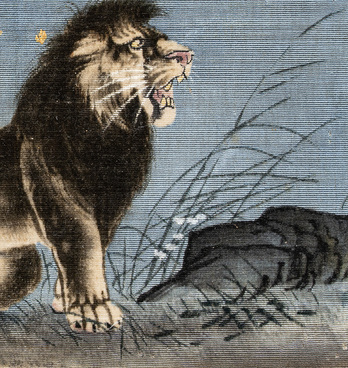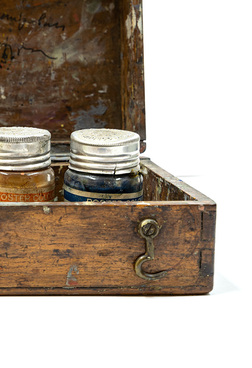Alexey Ivanovich Khlebnikov (1801–1871) was a native of Astrakhan. His father Ivan Matveyevich, grandfather Matvey Ivanovich and great-grandfather Ivan Petrovich owned a shop in the city; Alexey’s first wife Natalia Mikhailovna, nee Simonova, was also a merchant’s daughter.
At the age of 15, Alexey Khlebnikov graduated with honors from the Astrakhan Classical Gymnasium, but did not continue his education. Like his ancestors, he engaged in trade. He was a merchant of the first guild, sold grain and weapons, and delivered goods from Astrakhan “to the ports of the Caspian Sea” on four of his own schooners.
In 1852, Alexey Khlebnikov became an honorary citizen of Astrakhan.
Ten years before his death, he felt that his health was declining and sold his ships. He went on a pilgrimage to the holy places in Jerusalem, where he died. His body was transported to his homeland and buried in the family vault.
Alexey Khlebnikov had 15 children from two marriages, two of whom became prominent people: Pyotr Khlebnikov, a professor of the St. Petersburg Medical and Surgical Academy and author of “Physics of the Globe”, and Vladimir Khlebnikov, an ornithologist. The son of the latter was Velimir Khlebnikov.
Alexey Khlebnikov died 14 years before the birth of his famous grandson. Velimir saw a photo of his grandfather kept in a family album and heard stories about him from relatives. But in his poem “Hajji Tarkhan”, dedicated to the history of Astrakhan, some lines directly refer the reader to the poet’s pedigree.
The direction “To India, the window” hints at the Indian trading colony, which was located in Astrakhan in the 17th–18th centuries, with which Velimir’s great-great-grandfathers probably had a connection. The poet recalls his grandfather’s sea schooners in the line “The merchant’s ships. Now they are gone.” He also mentions the family vault, where the ashes of his grandfather rest: “…centuries-old words in that stone shroud.”
In the poem, Velimir Khlebnikov describes his grandfather Alexey Khlebnikov:

